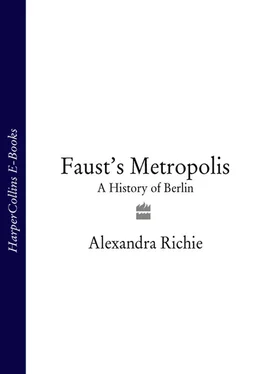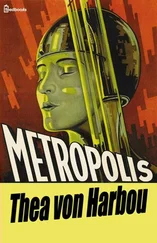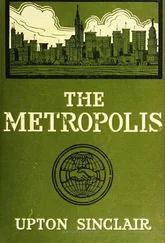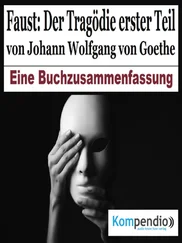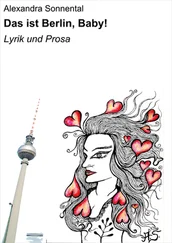Even the notion of creating an ‘instant capital’ is fraught with problems; Berlin is still trying to re-create itself rather than allowing a natural evolution. I was born in the 1960s, and yet I have already lived in three quite different Berlins – East Berlin, West Berlin and the new united capital. The city changes identities like a snake sloughing its skin. It is impossible to imagine New York or London undergoing even one of the great convulsions which have racked Berlin in the past century. The political upheaval itself has been bad enough, but more worrying is the way in which Berliners have responded to it, leading outsiders to suspect that whatever Berliners are today, the status quo might not last for long. It is not enough simply to declare that the city will be the ‘workshop of German unity’ or that it ‘marks Germany’s coming of age’ or that ‘with its historical and cultural Ausstrahlungskraft ’ (radiating power) it will make German democracy ‘better and more stable’ than the mere ‘political decision-making centre of Bonn’. 34It may seem unfair, but Berlin will have to work hard to prove to the world that this ‘democratic phase’ is not merely another passing trend.
While the domestic problems of unification and of the move to Berlin occupy the Germans, the rest of the world is watching and waiting to discover what this new ‘Berlin Republic’ will do elsewhere. Policy-makers in Washington, Moscow and Paris, in London, Tokyo or Beijing, do not much care whether ex-Stasi members have had their rent increased or if former West Berlin artists lose their subsidies. What they do care about is the international arena. There is a great question mark hanging over Germany: Will the move from Bonn to Berlin signal a fundamental shift in German foreign policy? Will Berlin continue to behave like Bonn, or will the geographical move mean a change in Germany’s overall perspective on international affairs? Will Germany continue its pursuit of supra-national goals, or will the new capital create a new kind of German national pride – a new and more clearly defined national identity? And if so, what will this new Germany look like? Will it continue on its present course, or will it once again begin to assert itself in Europe? Will some of the old arrogance and the old resentments be rekindled, or will it remember the lessons of the past? These questions are of the utmost importance, as the decisions taken in the new German capital will affect us all. We can only hope that it continues in the footsteps of its predecessor.
Bonn was one of the greatest success stories of the twentieth century, perhaps of all German history. Established in 1949 under the auspices of the western Allies, it guided West Germany as it grew from a shattered, disgraced and divided ruin into a prosperous, stable country. It helped to prove to a sceptical post-war world that the Germans could indeed be trusted to govern themselves peacefully and democratically.
From the beginning the United States was Bonn’s most important ally. American and West German interests complemented one another during the Cold War and as the US tried to retain its influence over western Europe and keep the Soviets at bay, the Federal Republic worked hard to be accepted into the western community and became a loyal member of NATO in 1955. Germany also joined that other child of the Cold War, the Western European Union, which was based from the beginning on the relationship between France and Germany – and in particular on the remarkable friendship between General de Gaulle and Konrad Adenauer. It too was a symbiotic relationship. France’s military contribution to the Second World War was minimal; even so it was given a chunk of territory to administer, including a slice of Berlin. It became wealthy in part by hitching itself to the German economic boom, but although its status in Europe was maintained it had become increasingly dependent on Germany. In the 1980s France chose to socialize further rather than introducing difficult reforms, leaving it economically vulnerable. This would have mattered less had borders remained as they were. But in 1989 the Europe it had known for nearly half a century melted away.
When the Berlin Wall fell all the assumptions of the previous forty years were thrown into confusion. The Soviets’ loss of control over central Europe saw the end of the clearly defined bloc around which West German and western European foreign policy had revolved, and free countries like Poland, the Czech Republic, Slovakia, Latvia, Lithuania, Estonia, Hungary, Ukraine and others emerged from the once homogeneous Soviet zone, all with diverse interests and all at different stages of economic and political development. Suddenly everything was much more complicated, and much more volatile. West German foreign policy based on Ostpolitik , which had so gently prodded at the Russian bear for a few foreign policy scraps, and Genscherism , which had so carefully balanced West Germany between the superpowers, suddenly lost its raison d’être.
France was worried about German unity. It feared, as one French talk-show host put it, that the ‘uncontrollable German totalitarian tendency’ might yet rear its ugly head: ‘the shadow of Faust darkens the old continent again’. 35Worse still, far from having a European alliance based on a Franco-German partnership it looked increasingly as if Germany would look to the east. André François-Poncet’s quip was repeated frequently: ‘We all know that the Germans, whenever they join forces with the Russians, are soon afterwards on the outskirts of Paris.’ 36The answer was the Maastricht Treaty, the treaty meant to tie Germany to France before it could look elsewhere. In the words of one French newspaper Maastricht was ‘the Treaty of Versailles without war’ whose foremost aim was ‘to get rid of the German mark’. 37
The French had reason to be nervous. The newly unified Germany was daunting. In a matter of months quiet West Germany had become a nation of 80 million people, the biggest and most powerful in the European Union and, despite its somewhat sclerotic and over-regulated economy, one of the wealthiest and most influential in the world. France had to face the fact that it was, and would always remain, less influential in Europe than a united Germany. It was only the Maastricht Treaty which made the new order bearable for France: the expansion of German interests to the east was to be exchanged for one thing – the adoption of the single European currency and the demise of the Deutschmark. 38
As long as Helmut Kohl remains Chancellor it is likely that the German – French relationship will go on much as before even after the move to Berlin. Both countries seem to be willing to overcome all obstacles to achieve their goals; in 1997 Helmut Kohl even tried to fudge the value of Germany’s gold reserves in order to meet the Maastricht criteria. In any other country the idea of performing such financial gymnastics to give away one’s own extraordinary currency would be unthinkable but it is likely that by 1999 the new capital of Berlin will be part of a different European monetary system. The reasons for this also lie in a kind of mutual blackmail: if France needs Germany, Germany also needs France.
‘Germany is our Fatherland,’ goes Helmut Kohl’s slogan, ‘but Europe is our future.’ 39The phrase is loaded with meaning. Whatever claims they may make about the ‘grace of late birth’ separating them from the Nazi past Helmut Kohl and his generation are very much products of the Second World War and their thinking is shaped both by the conflict and by the shattered world which they grew up in after 1945. Kohl – who first saw decimated Berlin in 1947 at the age of seventeen – genuinely believes that the European Union will stifle aggressive nationalism and will prevent another war. He is also aware that Germany’s membership in the European Union helps to quell fears about German nationalism while at the same time disguising Germany’s own ambitions under the colours of the blue star-spangled flag. There is no doubt that it was useful for Germany to be able to refer to the European Union when it struggled to unify after November 1989, particularly when articles began to appear in the foreign press accusing Germany of trying to create a ‘Fourth Reich’. 40The Germans do not want to lose their ‘European identity’ – at least not yet – because they are unsure of their own national identity and because they are too insecure to voice their own national ambitions. That is why the endless pictures of Berlin’s Brandenburg Gate that appeared after unification showed it topped by the European, not the German flag. But in a way the French were right. If the move to Berlin symbolizes anything it is Germany’s shift to the east.
Читать дальше
